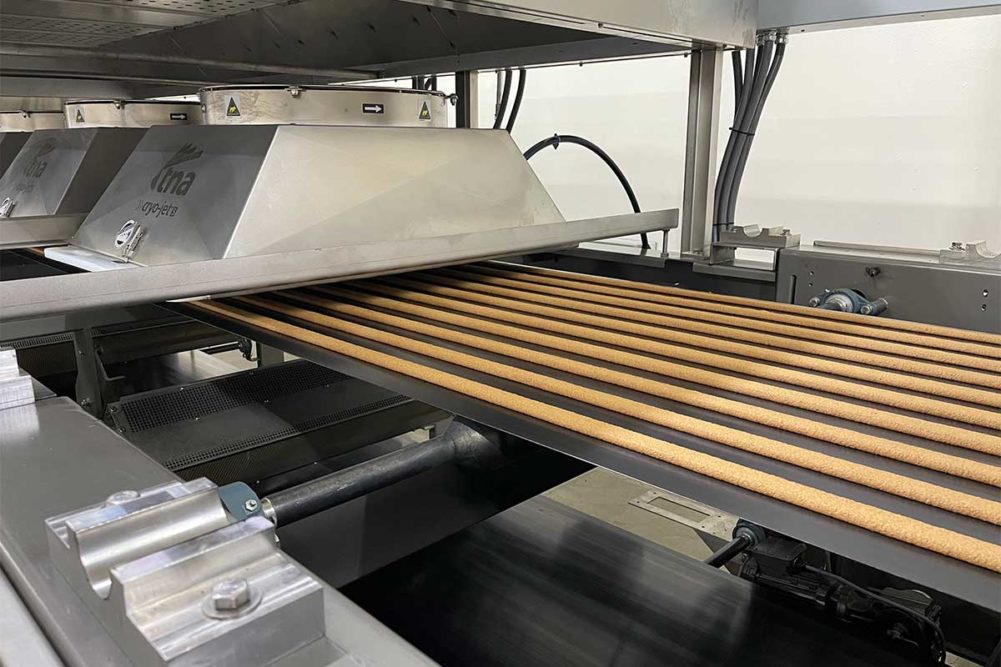Smart manufacturing also means much more than process enhancements. It also enables food companies to better manage their supply chains.
For instance, Sylmar, Calif.-based Fantasy Cookie uses production block scheduling, where it bundles similar products and runs them for several days at a time to minimize changeovers and drive efficiencies as a part of its turnkey co-manufacturing program.
“We have many just-in-time agreements with packaging and ingredient suppliers,” said Russ Case, chief executive officer, Fantasy Cookie. “We bring in those materials literally two or three days before our production block starts for a particular customer. And it’s gone until the next month, when the whole process starts again. It’s a very efficient way of managing costs and our operation.”
Fantasy Cookie also relies on transparency to better communicate with its customers and enhance its shipping and fulfillment process. Case noted packaged products are sometimes picked up and shipped to a customer’s warehouse less than 24 hours after production.
“Getting information from a co-packer can be ‘like pulling teeth,’ so we give them the information before they even ask for it, and that provides tremendous value to our customers that helps us grow our business because we are totally turnkey,” he said. “All they have to do is give us the purchase orders, and we’ll take it from there.”
With enterprise resource planning (ERP) and software integration, bakeries can better control raw material costs and more effectively track formulations to drive product consistency and monitor waste, noted Jim Vortherms, senior director, control systems integration at CRB Group.
“From a software control standpoint, tying it all into your ERP system gives you the opportunity to have real-time feedback on those [ingredient] usages and where you’re at from an inventory standpoint,” he said. “You don’t have a delay in production because you weren’t paying attention to what you have on the shelf and didn’t reorder in time.”
Vortherms noted the increasing potential for artificial intelligence can eventually model raw material usage more precisely and potentially keep a bakery in front of potential supply chain disruptions, such as when a key ingredient supplier’s plant shuts down unexpectedly for two weeks.
For Fantasy Cookie, installing another new production line should be a lot simpler because of proper planning. Its Arroyo Street facility now includes utilities, such as gas lines and electric capability, for that additional line.
For some companies, creating the bakery of the future doesn’t mean a lights-out operation. Learning from lessons past makes businesses operate better in the long run.
“When we do get to that point where we could justify it from a new business perspective, our second new oven will be truly plug and play,” Case said. “Our eyes were opened really wide with the first installation. There were 100 things that hit us that we didn’t expect. Now we’re ready for them.”
This article is an excerpt from the March 2024 issue of Baking & Snack. To read the entire feature on Smart Manufacturing, click here.





